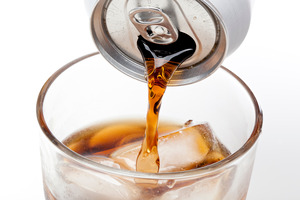
It’s no secret that regular soda tends to be high in sugar, which means it can significantly increase your risk for tooth decay. You may assume that you can protect your smile simply by switching to diet soda, which doesn’t have any sugar to worry about. Sadly, this isn’t the case; as it turns out, diet soda can be just as detrimental to oral health as regular soda. Your oral surgeon is here with the facts.
How Diet Soda Can Hurt Your Teeth
While diet soda doesn’t contain sugar, it does share one very important trait with regular soda: it is highly acidic. Consequently, frequently drinking diet soda could lead to erosion of the enamel protecting your teeth. Eroded enamel can’t repair itself, which means your teeth will be left more susceptible to decay.
Notably, diet sodas tend to contain phosphoric acid and citric/citrate acid. What makes these acids notable is that they can actually bond with calcium and pull it out of your teeth. This leaves you with weakened enamel that is less capable of defending the tooth against harmful cavity-causing organisms.
Of course, diet soda and regular soda are hardly the only drinks you need to worry about. There are other examples of beverages that are advertised as sugar-free but still contain acids that can harm teeth; 100% citrus fruit juices are a key example.
How Can You Protect Your Smile?
If you’re concerned about the effect that soda – diet or otherwise – is having on your teeth, the obvious solution is to simply drink less of it. You don’t necessarily have to give it up entirely, but cutting down the amount of soda that you consume on a regular basis could ultimately go a long way toward protecting your oral health.
You can switch out soda for beverages that contain no sugars or acids. Obviously, water is a great choice; not only is it essential for letting you stay hydrated, but it can also help keep your mouth clean by washing away the food debris that can contribute to tooth decay.
On the occasions that you do drink soda, it’s recommended that you swish a bit of water around in your mouth afterward to get rid of any leftover acids. Additionally, it’s best to wait about an hour before brushing your teeth after drinking soda. Otherwise, you may end up damaging the enamel by accident while it’s still weakened by acid exposure.
In short, it’s a mistake to assume that diet soda is a better option for your teeth than regular soda. Take the time to carefully consider what you’re eating and drinking so that you can fully understand the impact it might be having on your grin.
About the Author
Dr. J. Darrell Steele has decades of experience as an oral surgeon. He does what he can to keep his patients as comfortable as possible, and he always takes the time to explain their treatment options so that they can make the right decisions for their smiles. If you would like to schedule a consultation with Dr. Steele at Steele Oral Surgery in Coppell, visit his website or call (972) 315-3355.






